Iranian Drone Downed In Northeastern Syria: CENTCOM
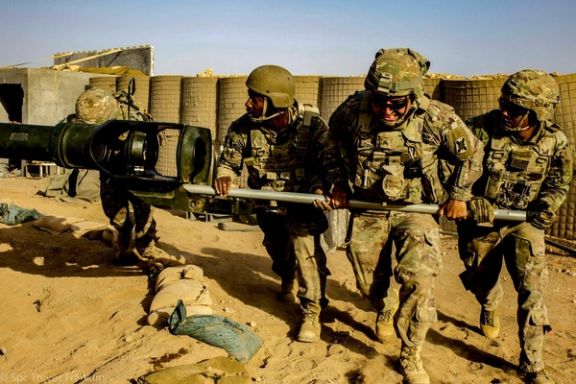
The United States Central Command (CENTCOM) says an Iranian-made drone was shot down by US forces near a base in northeastern Syria.

The United States Central Command (CENTCOM) says an Iranian-made drone was shot down by US forces near a base in northeastern Syria.
CENTCOM announced on its official Twitter account Wednesday that the drone intended to carry out a reconnaissance mission over the Conoco base in northeastern Syria near the border with Iraq.
The targeted drone was identified and shot down on Tuesday afternoon local time.
CENTCOM did not mention in its tweet which force, or group controlled the drone, only emphasizing that it was "Iranian-manufactured".
Several hundred US soldiers are stationed in the north and east of Syria as part of the international coalition against the ISIS. The exact number of these soldiers is confidential.
In recent years, bases where coalition troops are stationed have been sporadically targeted by rockets or drones.
The Conoco base in the northeast of the Arab country is named after the American company that was responsible for the discovery and construction of a gas filed station in this region.
This comes as the use of Iranian drones in Russia's war on Ukraine is of particular concern to the US and its European allies and has had a negative impact on relations between the Islamic Republic and European powers.
In this regard, officials of the US Defense Intelligence Agency on Tuesday presented new evidence of the supply of Iranian drones to Russia and indirect involvement of the Islamic Republic in the war in Ukraine.
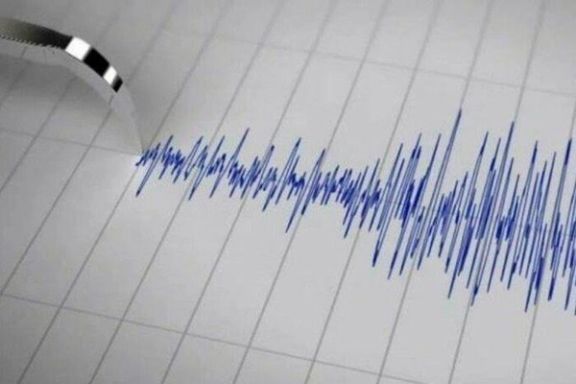
Iranian officials say there are 166,000 hectares of worn-out structures across the country which means a major earthquake like in Turkey and Syria might result in “hundreds of thousands of deaths.”
Farzaneh Sadegh Malvajerd, a Deputy at the Ministry of Roads and Urban Development announced Tuesday that about 1.4 million unstable units are built in urban parts of these areas.
Earlier, officials had estimated that the total area of worn-out and ineffective structures in Iran's metropolises is more than 166,000 hectares, with a total of 22,500,000 people living there.
Many of these areas are located on active earthquake faults.
In January, Mehdi Pirhadi, a member of Tehran Council also emphasized the need to renovate these buildings in Tehran to deal with earthquakes, warning that over 7 magnitude quakes could lead to hundreds of thousands of deaths.
Some experts had predicted that at least one and a half million people would die in case of an earthquake with a magnitude of 7 in Tehran.
However, it is not only the capital that is facing such a potential risk. There are active faults from Hamedan in west to Gilan in north that may cause a deadly earthquake at any moment.
Iran is crisscrossed by major geological fault lines and is one of the most earthquake-prone countries in the world because it is located where the Arabian, Indian, and Eurasian tectonic plates meet.
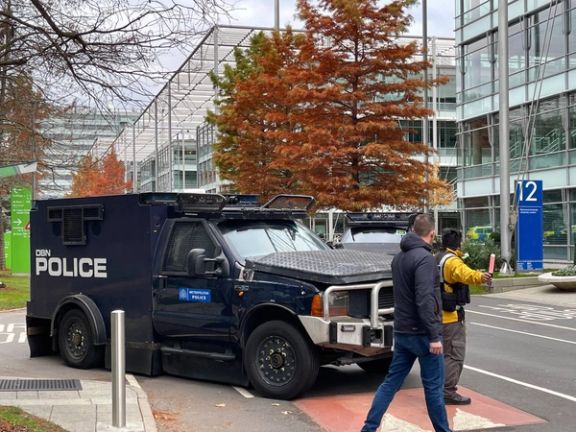
A man arrested in the vicinity of Iran International’s headquarters and charged with a terrorism offence pleaded not guilty in a court session on Tuesday.
Magomed-Husejn Dovtaev (Mohammad-Hussein Dovtaev), 30, an Austrian national, was detained at Chiswick Business Park on Saturday by officers from the Metropolitan Police Counter-Terrorism Command.
He appeared at Westminster Magistrates’ Court on Tuesday and pleaded not guilty, speaking via a German-Austrian interpreter. The first session on Monday was adjourned without the suspect saying anything because only a Russian interpreter was available at the court.
The suspect's name in Russian spelling signals that he is originally from one of the former Soviet republics, more likely from a Muslim-majority country. Dovtaev was bearded and wearing a grey sweatshirt and tracksuit bottoms.
He has confessed that he had never traveled to Britain before and he is now in London thanks to help from a friend named "Othman" whose contact was stored in his mobile phone as "B”. He said he knew Othman from his time in Chechnya. He admitted that he took pictures of the Iran International building but deleted them before his arrest. According to the indictment documents, he called two phone numbers, one Russian and the other Turkish.
Chief magistrate Paul Goldspring remanded Dovtaev in custody, to next appear at the Old Bailey on March 3. Michael Haggar was the prosecutor of the case and Seemsa Dosas was the defense attorney.
According to reports Dovtaev had in his possession several records containing information of a kind likely to be useful to a person committing or preparing an act of terrorism. These were seven videos depicting the outside of Building 11, Chiswick Business Park, as well as its security arrangements, contrary to section 58 (1) (b) of the Terrorism Act 2000.
Iran International was warned by authorities in November that its journalists were under threat from Iranian agents and the Metropolitan Police took measures to strengthen security around the network’s office in the area.
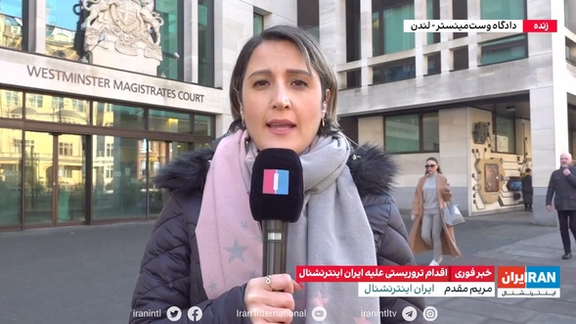
Amid repeated threats by the Islamic Republic against Iran International’s reporters, the UK government vowed in December to step up protection of London-based Iranian journalists.
British Foreign Minister James Cleverly said during a session at the parliament on December 13 that the Foreign and Commonwealth Development Office (FCDO), in partnership with the Home Office, had ensured that the Iranian journalists were protected by the British police.
“The UK remains absolutely determined to ensure that Iran does not intimidate people within this country. We will always stand up to the aggression from foreign nations,” he noted, adding, “We will absolutely not tolerate threats, particularly towards journalists who are highlighting what is going on in Iran, or indeed any other individual living in the UK.”
One day later, Iran’s Intelligence Minister Esmail Khatib in a television interview repeated threats to “punish all those” who had a role in popular protests against the regime, wherever they might be.
Khatib on November 9 had said the Islamic Republic regards Iran International as “a terrorist organization,” adding that its staff and anyone affiliated with the channel will be pursued by the Ministry of Intelligence all over the globe.
In November, Volant Media, the parent company of Iran International, said that two of its journalists had been notified of direct threats. It said in a statement the Metropolitan Police had formally notified both journalists that these threats represent an imminent, credible and significant risk to their lives and those of their families. Ken McCallum — the head of MI5, the UK’s domestic counter-intelligence and security agency -- said on November 16 that UK authorities have discovered at least 10 “potential threats” since January 2022 to “kidnap or even kill British or UK-based individuals perceived as enemies of the regime.”
Faced with nationwide antigovernment protests since mid-September, the Islamic Republic has blamed foreign-based Persian broadcasters such as BBC Persian and Iran International of “fomenting unrest”, while all media in the country are under tight government control and present protesters as “rioters” and “terrorists”.
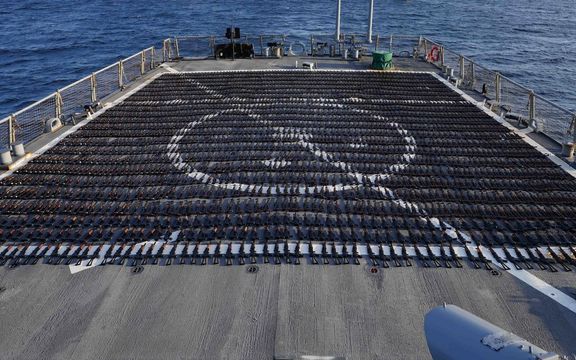
The US military is considering sending Ukraine thousands of seized rifles and ammunition once bound for Iran-backed Yemeni rebels, the Wall Street Journal reported Tuesday.
US officials said they are looking at sending Ukraine more than 5,000 assault rifles, 1.6 million rounds of small arms ammunition, a small number of antitank missiles, and more than 7,000 proximity fuses seized in recent months off the Yemen coast from smugglers suspected of working for Iran, according to the report.
“The unusual move would open up a new supply of firepower America and its allies could tap into as they struggle to meet Ukraine’s need for military support as its war with Russia enters its second year,” the WSJ wrote.
“The war in Ukraine is consuming an enormous amount of munitions and depleting allied stockpiles,” NATO Secretary-General Jens Stoltenberg said Monday, on the eve of an alliance meeting. “The current rate of Ukraine’s ammunition expenditure is many times higher than our current rate of production. This puts our defense industries under strain.”
The US had announced two arms seizures this year from vessels traveling in the Sea of Oman, on a route often used to carry arms from Iran to Yemen. There were also arms seizures last year. The two consignments captured this year yielded more than 5,000 AK-47 assault rifles.
Iran has been supplying kamikaze and possibly larger drones to Russia since mid- 2022 that have been used against infrastructure targets in Ukraine. The West has warned Iran to seize arms supplies to Russia, expressing serious concern.

The former secretary general of the Iran-Iraq chamber of commerce has confirmed that it is difficult to buy US dollars for travelers in Iraq due to US restrictions.
Mehdi Karami Pour told Shargh daily that he has been in Iraq last week and even had trouble getting a taxi.
A Shargh reporter also wrote on twitter that a number of Iranian travelers in Iraq said that due to the imposition of US restrictions on dollar transactions by Iraqi banks, exchange offices do not sell foreign currency to travelers.
Ali Shariati, a member of the Chamber of Commerce and a businessman, has also confirmed the news, saying that in Iraqi media Iran has been introduced as the main cause of inflation in the country and its dollar crisis.
According to reports many Iranian companies in Iraq do not have a clear identity and after Iraq joins the Financial Action Task Force (FATF) the activity of these firms would become even more difficult.
Washington has imposed new restrictions on dollar transfers to Iraq as the Arab country’s banking officials believe there is widespread money laundering for the purpose of sending funds to Iran and Syria, both under US banking sanctions.
Iraq is now feeling the result, with an unprecedented drop in the value of its currency.
Hundreds of people demonstrated near the central bank headquarters in Baghdad to protest the devaluation of the Iraqi dinar against the dollar, which has triggered a rise in prices of imported consumer goods.
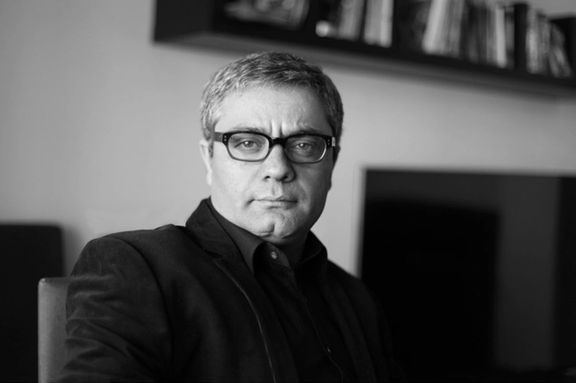
Renowned filmmaker Mohammad Rasoulof who was told not to return to prison from his medical furlough says the end of imprisonment is not the beginning of freedom.
Rasoulof who has been in and out of prison several times in the past few years for his works, was told not to return to prison, apparently as part of a partial amnesty announced earlier this month.
Rasoulof, winner of many prestigious film awards, said in an Instagram post Monday announced his release. “The end of imprisonment is not the beginning of freedom,” he wrote while wishing freedom for many other prisoners of conscience still remaining behind bars.
Several hundred prisoners including protesters, political prisoners and prisoners of conscience, and journalists have been freed since the announcement of Khamenei’s amnesty that authorities said would apply to “tens of thousands of prisoners”. Some of these had nearly served their whole sentence.
Judiciary authorities said that the amnesty would apply to those who “repented” from their supposed crimes and pledged not to repeat the offences.
Some of the those released from prison since then, including Zahra Kashkaki, a student at Tarbiyat Modarres University in Tehran who was arrested for protesting, say they had to sign a pledge. “I signed it. I hate myself,” she tweeted.
Apparently, many others have neither sought to benefit from the amnesty nor signed anything but were freed. Some including activist and Kurdish language teacher Zara Mohammadi even say they were hastily “kicked out” without them, their families, or their lawyers having asked for their freedom.
Human rights organizations, activists and lawyers have criticized Khamenei’s partial amnesty for protesters as a mere attempt at rescuing the image of the regime rather than a real step towards recognition of social and political freedoms and an end to repression.
“The mass amnesty of the prisoners of the Woman, Life, Freedom revolutionary movement on the condition of repenting indicates the continuance of Khamenei’s domineering mentality. It’s an endeavor condemned to defeat for mending his broken authority and fallen image,” US-based activist Ali Afshari tweeted while opining that it could also be a
security measure to prevent possible unrest in prisons where political prisoners are held.
“Amnesty? Detained protesters have done nothing wrong to be pardoned by Khamenei. It is Khamenei and the regime suppressers who must seek the forgiveness of political prisoners, those harmed and the families of those killed in the Woman, Life, Freedom movement protests,” journalist Morteza Kazemian tweeted after the announcement of Khamenei’s amnesty.
Rasoulof who is a Berlin Golden Bear winner, and his colleague Mostafa Al-e Ahmad were arrested in July 2022 after signing an appeal along with tens of other filmmakers and film industry workers. The appeal called on security forces to “lay down” their weapons and urging them to stop suppression of protests in Khuzestan Province fueled by the collapse of a newly built multi-story building in Abadan that killed over forty people.
After the execution of Mohsen Shekari, one of the four protesters the regime has hanged in the past five months, Rasoulof and other political prisoners issued a statement in which they said the execution was proof of the regime’s “desperation” and would only serve greater solidarity among the protesters.